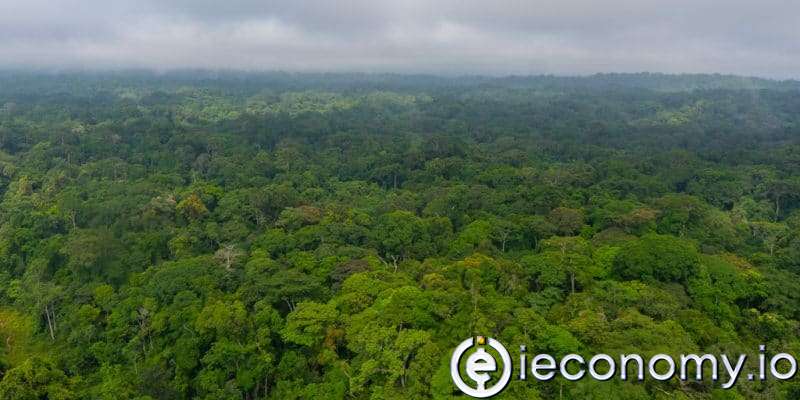9977
0
Gabon recently received $ 17 million for protecting its forest
Gabon recently received $ 17 million for protecting its forest. The local rainforest absorbs tens of millions of tons of carbon a year.

Yazar: Tom Roberts
Yayınlanma: 26 Temmuz 2021 01:45
Güncellenme: 18 Şubat 2026 04:55
Gabon recently received $ 17 million for protecting its forest
The economy of the Central African state of Gabon has so far relied on oil wealth, but black gold reserves are dwindling. The country is therefore figuring out how to monetize its natural potential. The local rainforest absorbs tens of millions of tons of carbon a year. Gabon recently received $ 17 million from Norway for protecting its forest. The Gabonese Republic, located on the west coast of the African continent, has promised $ 150 million from Norway, and collected the first seventeen a month ago. The transaction is part of the Central African Forestry Initiative (CAFI), which brings together six Central African countries and six financial partners, such as Norway. CAFI relies on the REDD + mechanism, which simply puts it, that developing countries should benefit financially from protecting their rare carbon-absorbing ecosystems, ensuring diversity, and contributing to a greater balance of volatile nature. But reflections on the financial potential of the rainforest go even further. The Financial Times describes the concept of the African Group for Development and Conservation of Nature (ACDG), which wants to make big money in the Gabonese rainforest without having to fall hectares of trees. The company has won a 50-year concession for about three percent of Gabon's mainland, a vast forest area to generate so-called carbon credits. ACDG will sell them to companies, which will buy "indulgences" for emitting carbon dioxide. Simply put, the concept could be likened to a cleaning service - a rainforest cleans up a cloud of carbon dioxide after a multinational company, as if a vacuum cleaner sucked in a clump of dust under the bed. "Every big company in the world has committed itself to pure zero," says ACDG spokesman Iftikhar Ali, referring to the promise of zero carbon emissions from cars, airlines and oil companies such as the British energy company BP. "They either have to invest in emission reduction technologies or they have to buy carbon offsets," says Ali. The group wants to issue carbon credits in the form of bonds, and Ali hopes that it will bring it about $ 300 million. "If we are able to issue a bond, it would set an important precedent for Gabon, which would then be able to issue similar bonds itself," says Ali.İLGİLİ HABERLER





European stocks soared and focus shifted to German retail sales after Powell's speech!

Forex Signal For TRY/USD: Inflation Slowdown in November.

Forex Signal For GBP/USD: Bullish Trend Still Not Breaking While Recovery Continues.

Forex Signal For EUR/USD: Starry US Data Points to Higher Fed Increases.

Forex Signal For BTC/USD: Downside Continues as Bitcoin Recovery Moves Less.
En Popüler Haberler
Yorum Yap
Yorumlar
Henüz yorum yapan yok! İlk yorumu siz yapın...